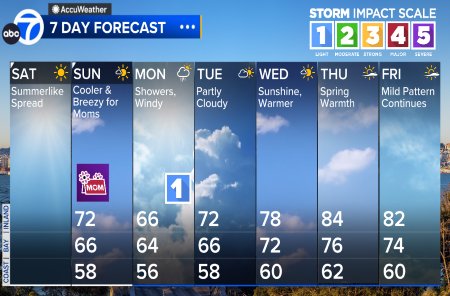Are DUI Checkpoints or Driver’s License Checkpoints legal?
The Fourth Amendment to the United States Constitution states that: “The right of the people to be secure in their persons, houses, papers, and effects, against unreasonable searches and seizures, shall not be violated, and no Warrants shall issue, but upon probable cause, supported by Oath or affirmation, and particularly describing the place to be searched, and the persons or things to be seized.”
At a sobriety checkpoint, drivers are stopped without reasonable suspicion, and may be tested summarily and without probable cause. Thus the Constitution would prohibit people from being stopped without a search warrant or at least without probable cause that they have committed a crime; however, the warrant need only attached should the search be unreasonable and the Supreme Court, as shown below, decided that such stops are not unreasonable under certain circumstances.
To find blood alcohol content accurately, it is generally necessary for the driver to subject themselves to tests that are self incriminating, and drivers sometimes exercise their right against self-incrimination to refuse these tests. To discourage this, some jurisdictions set the legal penalties for refusing a blood alcohol content test to equal or worse than those for a failing a blood alcohol content test. In other jurisdictions, the legal system may consider refusing the roadside alcohol breath test to be probable cause, allowing police to arrest the driver and conduct an involuntary blood alcohol content test.
The Michigan Supreme Court had found sobriety roadblocks to be a violation of the Fourth Amendment. However, by a 6-3 decision in Michigan Dept. of State Police v. Sitz (1990), the United States Supreme Court found properly conducted sobriety checkpoints to be constitutional. While acknowledging that such checkpoints infringed on a constitutional right, Chief Justice Rehnquist argued the state interest in reducing drunk driving outweighed this minor infringement. Dissenting justices argued that the Constitution doesn’t provide exceptions. “That stopping every car might make it easier to prevent drunken driving…is an insufficient justification for abandoning the requirement of individualized suspicion,” dissenting Justice Brennan insisted.
How do other states feel about checkpoints?
Ten states (Idaho, Iowa, Michigan, Minnesota, Oregon, Rhode Island, Texas, Wisconsin and Wyoming) have found that sobriety roadblocks violate their own state constitutions or have outlawed them. Two other states (Alaska and Montana) do not use checkpoints even though they have not made them illegal.
What are the standards for DUI checkpoints?
In an effort to offer standards for use by the states, the National Highway Traffic Safety Administration later issued a report that reviewed recommended checkpoint procedures in keeping with federal and state legal decisions. (“The Use of Sobriety Checkpoints for Impaired Driving Enforcement”, DOT HS-807-656, Nov. 1990) An additional source of guidelines can be found in an earlier decision by the California Supreme Court (Ingersoll v. Palmer ) wherein the Court set forth what it felt to be necessary standards in planning and administering a sobriety checkpoint in the US:
- Decision making must be at a supervisory level, and not by officers in the field.
- A neutral formula must be used to select vehicles to be stopped, such as every vehicle or every third vehicle, and not leaving it up the officer in the field.
- Primary consideration must be given to public and officer safety.
- The site should be selected by policy-making officials, based upon areas having a high incidence of drunk driving.
- Limitations on when the checkpoint is to be conducted and for how long, bearing in mind both effectiveness and intrusiveness.
- Warning lights and signs should be clearly visible.
- Length of detention of motorists should be minimized.
How are DUI checkpoints funded?
The Concord Police Department has been awarded a new traffic safety grant for an anti-DUI program for preventing deaths and injuries on our roadways. Additional enforcement measures to combat impaired driving are coming as a result of a recent $66,000 grant awarded by the California Office of Traffic Safety through the National Highway Traffic Safety Administration to the City of Concord as well as many other cities.
What is the Avoid 25 Program?
The ‘Avoid the 25’ DUI Task Force in Contra Costa County will be posting DUI/driver license checkpoints around the county. Twenty-five refers to the number of municipalities participating. For further information and statistics on the Avoid program, visit: http://www.californiaavoid.org.
Which Police Agencies are participating in the program?
Agencies participating in the ‘Avoid the 25’ task force include:
- Contra Costa County Office of the Sheriff
- Antioch Police Department
- BART Police Department
- Brentwood Police Department
- Clayton Police Department
- Concord Police Department
- Danville Police Department
- East Bay Regional Parks Police Department
- El Cerrito Police Department
- Hercules Police Department
- Kensington Police Department
- Lafayette Police Department
- Martinez Police Department
- Moraga Police Department
- Oakley Police Department
- Orinda Police Department
- Pinole Police Department
- Pittsburg Police Department
- Pleasant Hill Police Department
- Richmond Police Department
- San Pablo Police Department
- San Ramon Police Department
- Walnut Creek Police Department
- Contra Costa Community College District Police Department
- California Highway Patrol
Last updated 1/23/13







